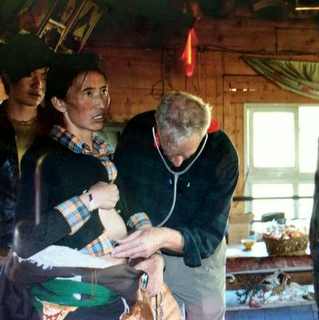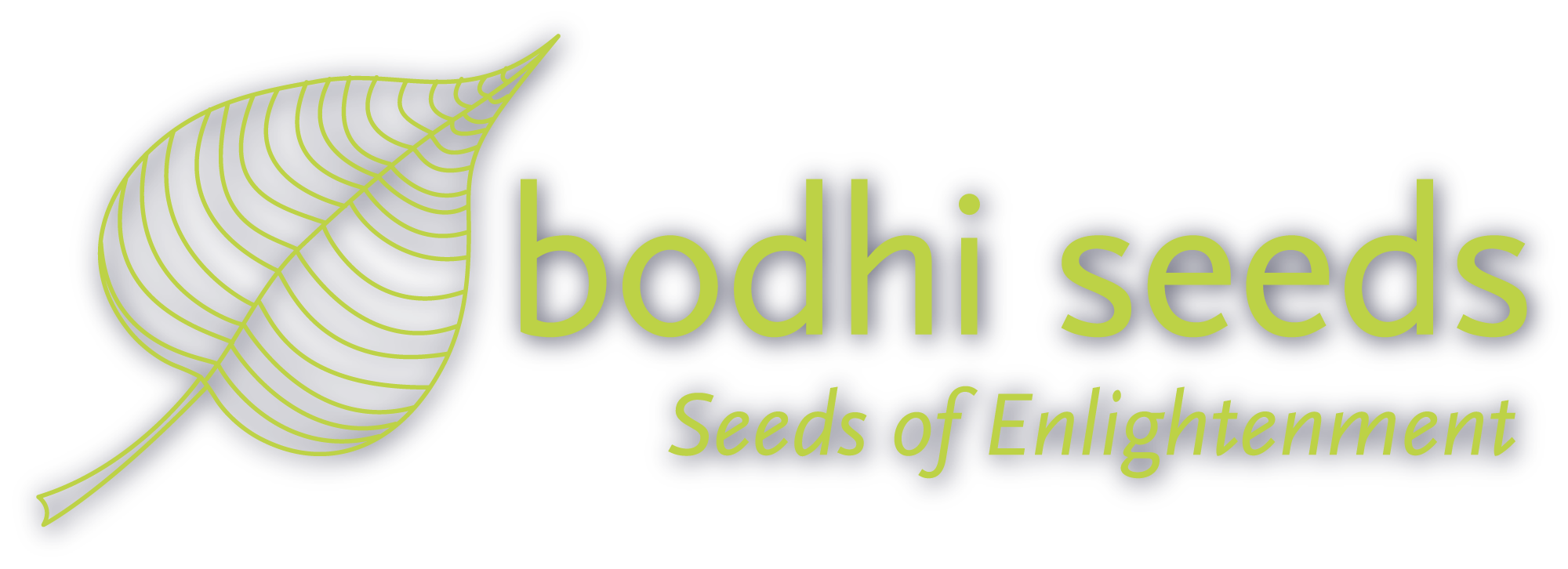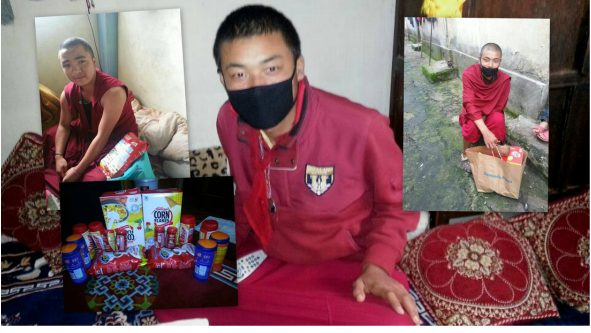 Parasitic disease, specifically, echinococcosis is said to be endemic in Tibet. It's an insidious disease that sometimes just presents as fatigue or progressive loss of weight over years. While we were visiting a family in their home, this young mother simply manifested in the room... ghost-like.You can see she was gaunt and looked wasted. She had no energy and hardly any expression on her face. Her belly was rock hard and distended. She had received some help in the past and I was told she had xrays. I didn't know what was wrong, but we would try to help her. Almost a week later, while travelling on dirt roads, village to village with Lama Ajok, he brought the car to an abrupt stop. This woman appeared again, on the other side of a wire fence, leaned over the fence, and gave Lama Ajok an envelope. It was her xrays. Lama Ajok took pictures of the xrays by holding them up to a sunny window and then forwarded them to me. Once home in Seattle, I consulted several physician friends who felt that her liver was enlarged and had at least one, if not more large cysts. I thought there was a good chance she had cystic ecchinococcosis of her liver and needed surgery if she was going to survive. Bill Warnock is the head of Lhasa-Boulder Sister City Program and knows a great deal about the disease. I called Bill and asked him if he knew any surgeons who could help us. Bill had worked with a surgeon in Lhasa and knew this same doctor now worked in a military hospital in Aba, at least several days drive from Legon. I gave the phone contact to Lama Ajok who called the surgeon. The surgeon, a Tibetan who spoke the local Kham dialect, agreed to see the woman. I thought everything was set, but mother would not go. She had no child care for her children and needed to consult the lama to find an auspicious time for the journey. Perhaps a month or so later, she was able to make the journey. Doctor saw her, but the disease was too advanced. In some instances, the cysts take over a good part of the organ, and nothing much can be done. Perhaps in some cases, a liver transplant is possible, but not here. Lama Ajok made the journey back to Legon with this young mother. I can imagine the trip home was pretty quiet. I haven't heard how she is doing; I'll make the call to Lama la and ask. Bodhi Seeds provided funding to enrich the diet and to rent separate living space for these two young monks as they underwent medical treatment for tuberculosis.
Bodhi Seeds supports the Tso Jey Clinic which served as a site for T.B. education . The nurse at the clinic distributed state funded medication. Bhodi Seeds contributed to the cost of special lab tests and medication needed to treat a Rumtek Monastery staff who had a complex case of tuberculosis (See her letter below.) Through Bodhi Seeds and its connection with Rumtek, Dr Donald Ross helped coordinate a response that diminished this great threat to the inhabitants of Rumtek. Below is his account . Reported in the Seattle Times, June 9, 2015, "Globally, 9 million people contracted TB in 2013, and 1.5 million died from it, according to the World Health Organization. Nearly a quarter of all the cases occurred in India, which has the world’s largest epidemic. Overall, drug-resistant bacteria cause only about 5 percent of all cases, and XDR (extensively drug resistant) bacteria are a small subset of that group, causing about 48,000 cases in 2013. But XDR-TB has shown up in 100 countries, and it can be deadly, particularly in countries with weak health-care systems. Standard TB usually requires treatment with four drugs, and can take six to nine months. Treating XDR-TB takes longer, sometimes a year or more, and requires more drugs. The drugs have unpleasant side effects that are hard to tolerate....They cause nausea, weakness and other problems that make patients want to quit taking them before the full course is finished. But missing doses and quitting too soon are precisely what cause drug-resistant bacteria to develop — requiring even longer treatment with more drugs and nastier side effects." May 2014. as a Bodhi Seeds administrator, I received a casual update on news from Rumtek. Embedded in conversation was news of two cases of tuberculosis... two young monks in their teens, who had been treated before. As a physician, I felt very concerned and that definitive action was needed. What actions could Bodhi Seeds take? I knew that in Rumtek Monastery, hundreds of monks live close together in rooms that are not ventilated. The cases already identified had been treated before. Could they now have multi-drug resistant tuberculosis? They were living among the general population and could infect their close contacts. This set the stage for a serious outbreak, especially if ill monks were not isolated and treated quickly, and their close contacts weren't diagnosed and given proper treatment. I made contact with friends and friends of friends in the US and in India: Dr.John Burnhill, Kunchok, Dorjee, Dr. Masae Kawamura, Dr.Tsetan Sadutshang from Delek Hospital in Dharamsala,, Dr. Christine Ho, and King County Public Health Department. Everyone arrived at the same conclusion: the monastery community needed to be screened. Active cases, whether symptomatic or asymptomatic needed to be treated with direct observation treatment and quarantined until no longer infectious. Screening would be complicated as it involved interviewing the entire community for symptoms of tuberculosis, locating all close contacts of active cases, obtaining chest xrays,, and sputum for microscopic analysis and culture. We discussed a variety of plans, including one which would have flown a Bodhi Seeds consultant to Rumtek to oversee the necessary interventions. The Ebola crisis was also at its peak at this time, and our consultant was called to Africa to help. Months passed and many phone calls and emails were exchanged. It was getting closer to the time when the monastery virtually closes down and monks disperse across the country for family visits and for their debate contests. They would make their way to the Kagyu Monlam in Bodhgaya where as many as 10,000 would gather to listen to teachings. This is a perfect storm for transmitting tuberculosis. Four months later, there was still no response to screen the community. Monks would be leaving within several weeks. Then, unfortunately, an immune compromised Rumtek Monastery staff person contracted the disease. From the lab studies I saw and discussed with experts, it appeared as if she might have XDR-Tb. Given her complex situation, Bodhi Seeds paid for her diagnostic studies done with experts in Delhi. Now, with this turn of events and the emergence of possible XDR-Tb, wheels began to turn more quickly. I had further consultation with Dr. Tsetan and with the administration of the monastery. The Revised National Tuberculosis Program (RNTP) team from the State of India would be called in to help. The team did in fact arrive within a week and performed extensive teaching for the community of monks and villagers on the cardinal symptoms of tuberculosis, the causes, tests, treatments and preventative strategies. More cases were identified for treatment. It was reported to me by a resident of Rumtek that the monks felt well informed. However, the State team did not pursue any active case finding. This meant that some cases would likely go undetected. Regrettably, endemic tuberculosis in the monastery is still a reality. As of today, I have no reports of new cases. All those that have been treated have responded to treatment as they await news of a definitive cure. The resident with probable XDR-Tb has been able to reduce the number of drugs she takes (see her letter below). But, the RNTP team could not perform any screening of close contacts of those with tb nor screening of the general community . Sadly, because of the complexities of diagnosis, treatment and prevention, the scientific journal Nature reports, "Physicians in India have identified a form of incurable (Totally Drug Resistant Tb, TDR) tuberculosis there, raising further concerns over increasing drug resistance to the disease." Because of the lack of screening and surveillance, Rumtek is at risk for another outbreak. Bodhi Seeds will continue to monitor the situation at Rumtek and help as it can. Letter from Tashi Wangmo (name changed), patient with probable EDR-TB: "Dear Tashi la, Hope you are doing well. I wanted to let you know that I arrived yesterday from Delhi. In Delhi I had taken my recent xray and liver function test and CBC reports. The doctor I am consulting mentioned that my xray report looks good compared to the earlier xray reports. To sum up he says I' m improving hence, removed cycloserine from my TB medicines. So I no longer take cycloserine. Further, I'm no longer contagious and told its okay not to wear mask or cover my mouth but m asked to maintain seperate dishes/utensils for my food. So I'm happy to inform you that as per doctor's remark I'm improving and will have to visit again to Delhi after 3 months and hopefully my injection will be removed as well. Am still continuing with the vitamins Masae* had sent. I have written the same to Masae. Warm regards, Tashi Wangmo" Click here http://www.bodhiseeds.org/generosity.html to support Tso Jey Clinic |
ARCHIVES
July 2017
CATEGORIES
All
|



 RSS Feed
RSS Feed
